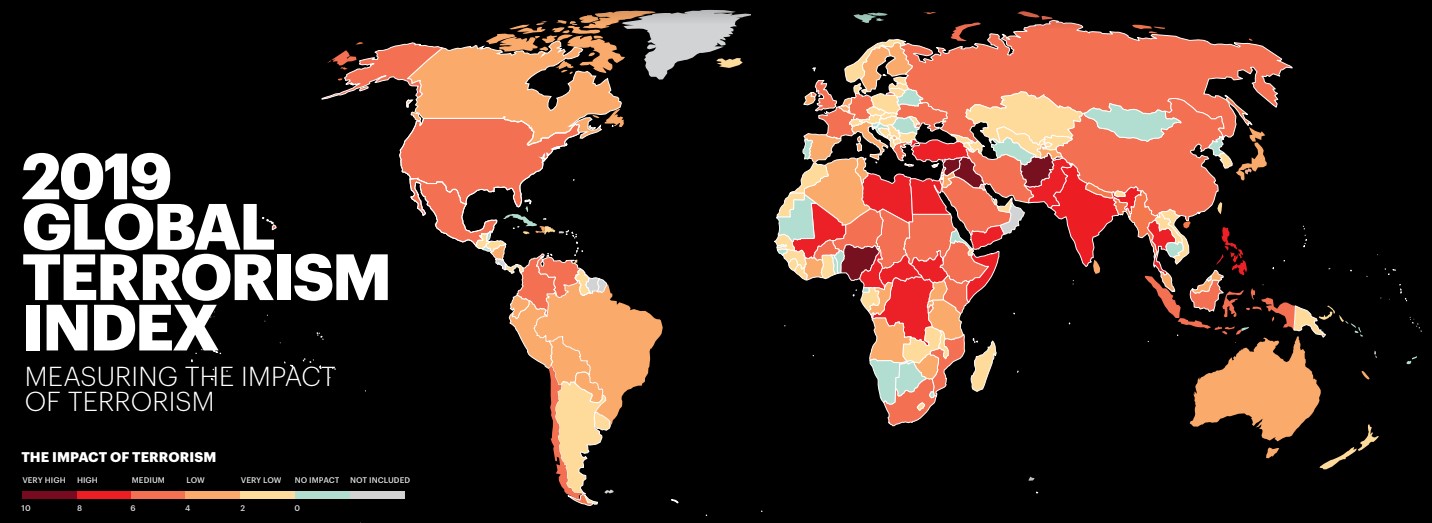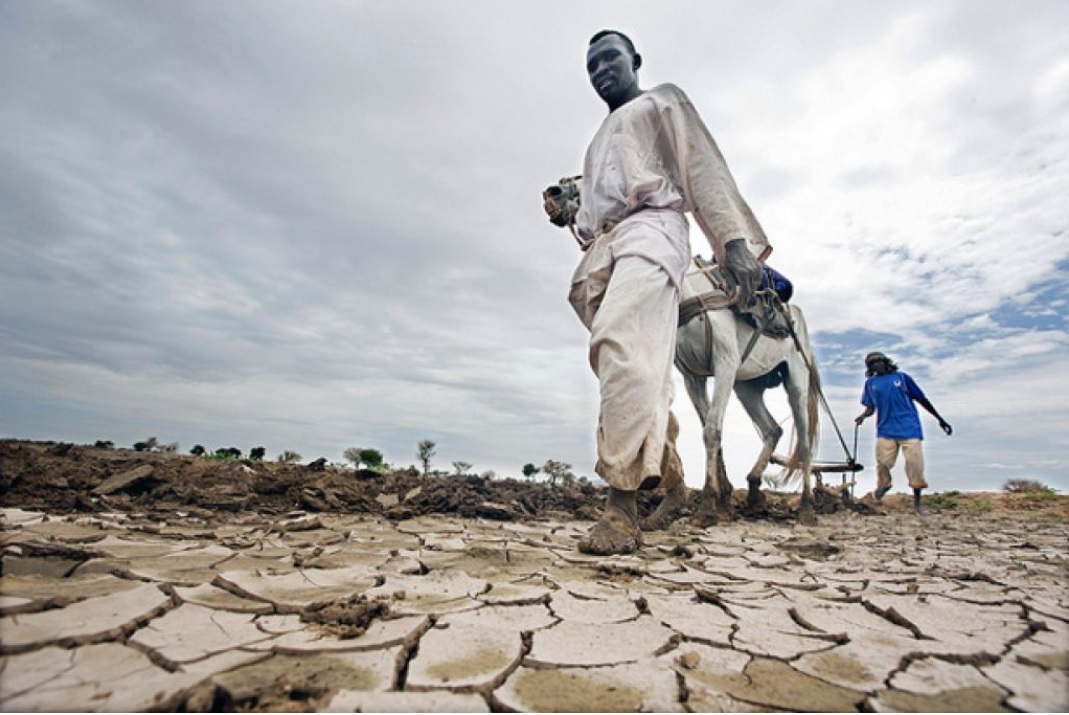The 2019 Global Terrorism Index (GTI) shows that since 2014 the number of deaths due to acts of terrorism has declined consecutively from 33,555 to 15,952, dropping by over 50%. The Index is released annually by the Institute for Economics & Peace (IEP) and gives extensive data about global terrorism tendencies.
As a result of the downfall of the Islamic State of Iraq and the Levant (ISIL) in Iraq and US-led airstrikes on Al-Shabaab, the score of 98 countries rose in contrast to 40 that fell.
After 2004, this is the largest number of countries that have improved.
Still, the Index shows that the scope of terrorism has increased, with deaths caused by terrorist activities spreading to 71 nations compared to the 67 from the prior year. Afghanistan has taken the number one spot from Iraq for the first time since 2003 and has the number of fatalities recorded growing by 59%. Mozambique, Nigeria, and Mali witnessed the next largest increase with more than 100 confirmed deaths. The regions that were the least affected by terrorism are the Caribbean and Central America, while South Asia suffered the most.
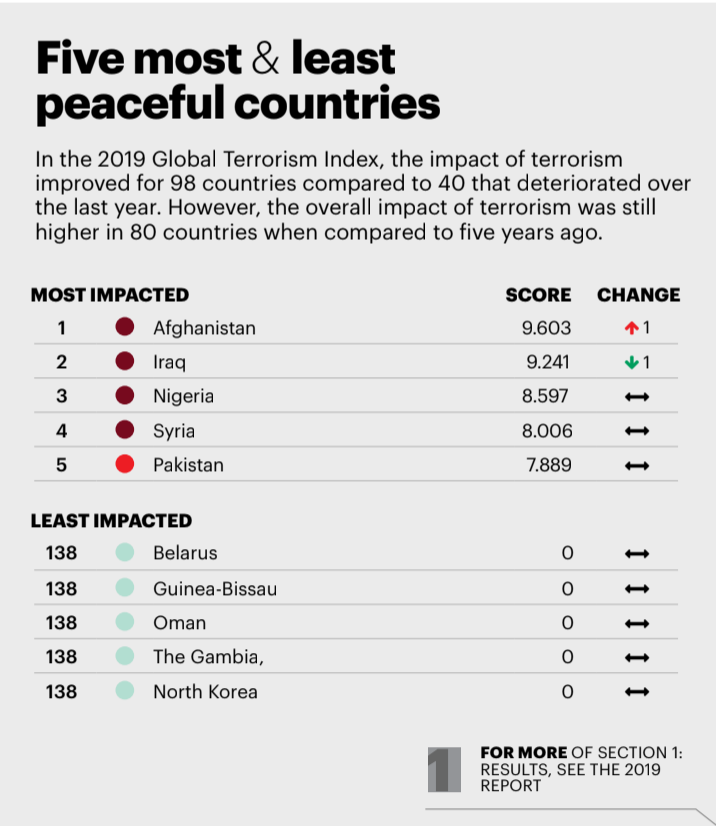
Steve Killelea, Founder and Executive Chairman of IEP, points out that: “IEP’s research finds that conflict and state-sponsored terror are the key causes of terrorism. In 2018, over 95 percent of deaths from terrorism were occurring in countries that were already in conflict. When combined with countries with high levels of political terror the number jumps to over 99 percent. Of the 10 countries most impacted by terrorism*, all were involved in at least one violent conflict last year.”
Related articles: Let’s talk about War and Peace with Steve Killelea | Peacebuilding: Is It Cost-Effective? | Boko Haram’s Decline: A Positive Opportunity
The threat of far-right political terrorism has grown for North America, Western Europe, and Oceania in the last five years, with 19 nations impacted by attacks during the same time period.
Between the years 2014 and 2018, right-wing terrorism rose by 320% in the above-mentioned regions and continued in 2019. From the beginning of the year to the end of September 77 fatalities were associated with extreme right attacks. In contrast to Islamic terrorism, none of the attackers claimed to be an organized terrorist organization, making it challenging countering attacks of this nature by security organizations. At the same time, terrorist-related deaths have fallen in Europe from more than 200 to 62 in the year 2018.
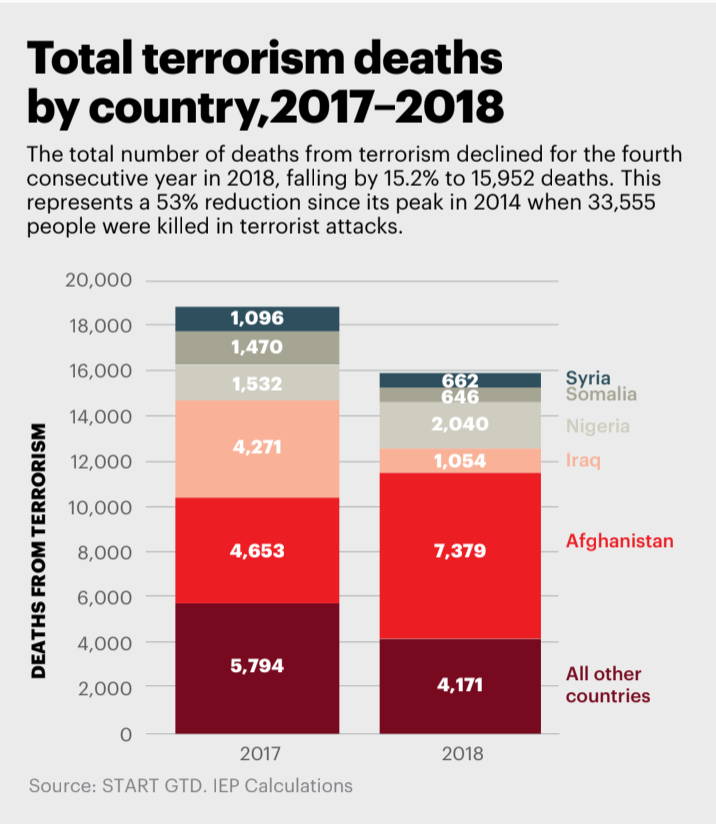
The increase in terrorism in Afghanistan and the settling of conflicts in Iraq and Syria led to the replacement of ISIL by the Taliban as the deadliest terrorist organization in 2018. The number of fatalities caused by the Taliban increased by just less than 71% to 6,103, comprising 38% of the total deaths worldwide. In comparison, ISIL connected deaths have fallen worldwide by just under 70%, from 4,350 to 1,328 in 2018.
Related articles: Progress on the ‘Peace Goal’|Global Conflicts: A 13.6 Trillion Dollar tab 2017
The presence of women in terrorism has also grown, despite it still accounting for a small part of all terrorist activity. During the time period of 2013 to 2018, this tendency has mostly risen because of Boko Haram and the overall amount of women suicide attacks rose by 450%. On the other hand, over the same interval, male suicide attempts decreased by 47%.
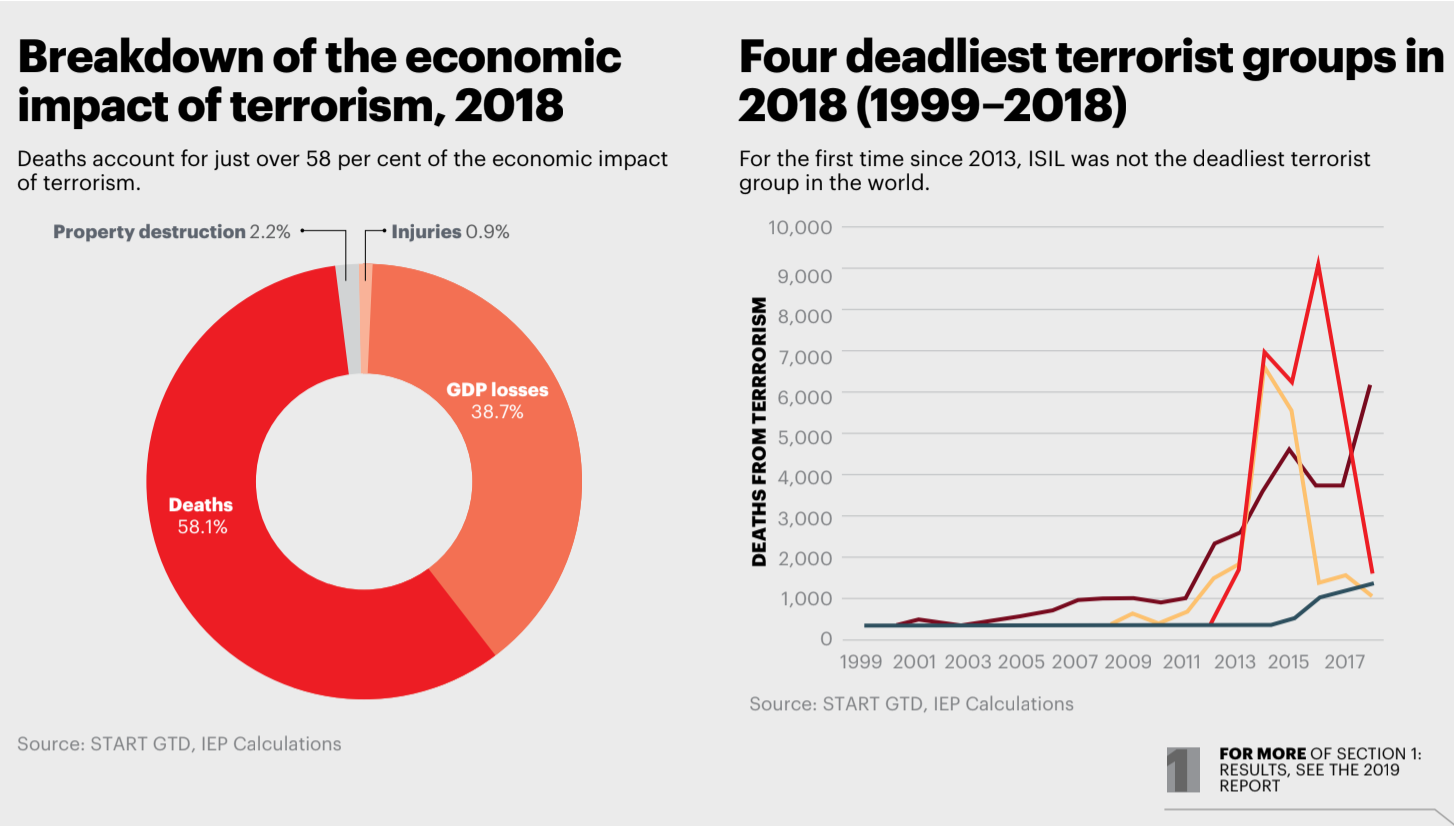
During 2018, along with the decline in terrorism, the economic repercussions caused by it have also lessened, falling to US$ 33 billion which is a total reduction of 38%.
Terrorism represents a small portion of the overall global costs caused by violence, equivalent to $14.1 trillion in 2018, and in this, it differs from other types of violence like homicide, military conflict, and defense expenditure. The real economic consequences of terrorism would undoubtedly be considerably larger as these estimates do not take into consideration the indirect consequences for businesses, capital, and expenditures related to combating terrorist organizations.


